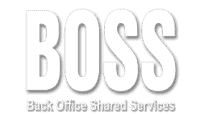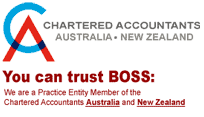Interviewer : Susan Germein – BOSS
Interviewee : Anne Turner – Director, CWL (now Cordner Taylor Accountants)
SG: Welcome to the Back Office Shared Services webinar. I am Susan Germein and today I’ll be talking with Anne Turner, Director at Cordner Wilson & Ludeke, Robina on the Gold Coast. I’ll be speaking with Anne about their experience of taking on a BOSS IN-Resourced accountant from Bangalore in India.
With any new idea, we need to have innovators who are willing to take it on and pave the way for others. Partnering with Indian expertise is not that new in itself but for small, medium enterprises and sole practitioner accounting firms in Australia, this solution to human resource issues might seem a little bit outside the square. So we are lucky to be talking to Anne today who did take the plunge and who we hope is willing to share her ‘warts-and-all’ experience about taking on a BOSS in-resource accountant.
So Anne, you have Krishna working for the company for just over 12 months now both in Bangalore and in Robina, how are you feeling about it all at this stage?
AT: More comfortable than we did in the beginning certainly and quite confident that going forward it’s going to work for us.
SG: Why did you consider IN-Resourcing as an option in the first place?
AT: A number of issues and I think there are issues that most accounting practices are facing these days. First of all, accessing good staff, qualified staff who are prepared to commit for a reasonable period of time; the costs of actually employing graduates and a couple of year- experienced accountants, extremely high, the volume of compliance work we have to do these days, so the costs of dealing with the compliance work is getting higher and higher so it’s mainly cost-driven but also continuity of staff.
SG: Could you explain briefly how this arrangement actually works having an accountant working for you remotely in Bangalore?
AT: Well, firstly, we don’t see it as somebody working remotely, it’s somebody just working in another office, so I think that was the mindset we had to change, and we had to change a lot of our systems to fit with that, so we just have somebody who works for us in another office and we have the technology to make that a fairly simple process for us.
SG: What sort of work does he do for you?
AT : He’s working at the level of any accountants that we’d be employing up to 3 to 4 years experience in Australian tax. He’s learned very quickly, he is very talented and we are confident to give him any level of work at this stage.
SG: What are his qualifications?
AT: Kris is a Chartered Accountant, very clever young man, he’s been working and has a number of years experience, and certainly the year that he’s been working with us has given him good grounding in Australian tax.
SG: And how do you actually go about communicating with him on a day-to-day basis?
AT: That was difficult initially we had to have it work for us given the technology that we use. We use Skype, but probably email is the main method of communication. Kris understands English, he communicates written English perfectly okay. We have a little trouble understanding him but that is something improving as time goes by so email works for us.
SG: Can you only pass on more simple sort of accounting tasks to him or can you pass on messy works as well?
AT: Well, initially we had a bit of trouble, we thought ‘do we pass on the messy work’?, and we all have messy work and I guess the systems then have to be… they got to allow to pass on messy work, lots of bits of paper so we weren’t initially, but we certainly are confident now that we can throw anything at him as long as we have the data transferred, relatively simple and efficient from our end, and we are getting better at that.
SG: How does the error rate compare with that in the office here at Robina?
AT: It’s a bit hard to generalise, I think it depends on who you would have working for you. Kris is very talented. His error rate is very low. He is a very quick learner and it comes down to adequate training and review processes which you would have with any accountant that you employ whether it’s within your office or whether sitting in an office somewhere else.
SG: How much review was required compared to work done in your own office?
AT: Initially more, because we had to be confident that he knows what he is doing, also we were a little nervous because he hadn’t had a lot to do with Australian tax but certainly as time has gone by, we became more and more confident and he requires less and less review at a very low level. Nowhere near as much as he did. But we do that with any of the accountants we employ anyway, until you know what their capabilities are and what level of work they produce, you got to review pretty closely.
SG: I know it’s probably early days in terms of evaluating the bottom-line benefits of having an IN-Resourced accountant but I would like to touch on this nevertheless. What do you see is the benefit of having an IN-Resourced accountant?
AT: Continuity of the resource. Having somebody working with us, and hopefully for a long period of time. Keeping costs down, and the more efficient we become with our systems, the more cost effective it is for us certainly, I mean, it is cost effective now, but it will improve as time goes by.
SG: What is the extra cost of managing this relationship and of passing work to and fro?
AT: I guess the main cost is the time taken to prepare a file and to transfer the data. We work on a terminal server and we have another server that we use, we call it the India server. We transfer files from our main server across to the India server, and we restrict access to certain information, we can control it that way, so it really is somebody spending the time to scan, to transfer data.
Once again, in the beginning it took a long time. Now it takes a lot less time so we would develop efficiency in our systems.
SG: And still looking at that slide 5, in terms of retention, I know that it’s an issue currently in Australia; do you see that as a benefit to Krishna Raj, do you think he is attracted to continuing to work for your company based in Bangalore?
AT: We hope so. Certainly because we’re treating Kris as being a member of our team. We also want him to be happy with the position and to progress through, so have some sort of career path. So we see him being highly trained in Australian tax, knowing what we require. So as we build a team in India, then he can be the one that manages. So we don’t treat him any differently to what we would anybody working in the office here. We understand that’s what he wants as he goes through.
SG: What is it like getting started with your remote accountant in Bangalore. In the previous conversation, I think he used the term “painful”. Can you tell us a bit about that?
AT: It was because we didn’t know what to expect and obviously Kris and his team in India didn’t really know what to expect from us so it was not only the normal issues you have with employing somebody different, we really have to review our systems. It was a good process because we did review the systems and we did change them.
Also there was a perception with the other team members where workers and client managers having to work directly with Kris in reviewing and transferring information and they were not expecting the level of work that we were getting so there were feelings that I had to do a lot of heavy reviewing in the beginning. And there was a bit of resistance there that I didn’t want to transfer the files that I just want to do it ourselves… and I think we’ve worked through that over a period of time.
SG: Can you talk a little bit about the security issue. What were your concerns and how did you deal with it?
AT: Well it’s a process of working backwards because originally we thought we wanted absolute security because everybody is conscious of identity fraud, bank account fraud, so we didn’t want to provide any details at all. But we just couldn’t work that way so we had to discuss really what level we could actively work with because, at security level, if you are not providing enough information, it doesn’t work. So BOSS provided us with a document that’s been lodged with the Indian government to show their commitment to security. We were comfortable with that.
We know the Institute of Chartered Accountants is very conscious of these issues as well, going forward, with this sort of businesses so we ended up deciding what we would and wouldn’t send, and most of the information that we have we make available to Kris. We don’t make bank account details available, that’s probably the main piece of information that we blank before we provide across another server.
SG: How would you compare the experience of taking on an Indian accountant as compared to taking on an Australian accountant?
AT: It’s different, I probably would have said more difficult initially. Now I wouldn’t say that it is terribly difficult. We’re finding the experience is getting better for us. I think it comes down to expectations. We didn’t know what to expect, and Kris didn’t know what to expect either, I mean he’d be doing what he thought was the right thing to do and we were getting frustrated because we wanted more and so we realized we just have to say that we want more and this is what we want. So we became very specific about what our requirements were, he’s met those requirements very, very well. I think it’s just being very clear about what we want.
SG: And how does Kris measure up against his Australian counterpart in terms of his knowledge, his professionalism, and his productivity?
AT: Extremely well. I am very impressed with Kris, we have him working in the office at the moment which has been a good experience but he’s picked up a knowledge on Australian tax in that period of time that…. He is quite incredible and his work, he’s doing exactly as we would expect it’s at a very high standard so, I think he is excellent.
SG: How has your existing team reacted to having a remote accountant in Bangalore?
AT: Initially some were a little bit negative about it.
SG: On what basis?
AT: I think perhaps a lot of the team members don’t actually experience how difficult it is for employers in the industry to get good staff, retain good staff, the cost pressures bottom-line issues and so on, so they just perhaps there were a couple of that sort of thing, you know we’re just taking a cheap option rather than employing an Australian accountant, but I don’t think that’s the perception anymore, I think there’s a pretty high level of acceptance.
SG: Krishna Raj is here for 3 months and I think he’s been here for 2 months so far, he’s got another month to go. What made you decide to bring him to the Gold Coast?
AT: We thought that he would benefit by coming here and experiencing the way we work, how our files are set up, why we require him to do certain things in a certain way, and we thought it would benefit us as well because by having him here we can actually work directly, it has made a lot of difference with communication and understanding. Also getting to know the sort of work we can actually give him, just throwing everything at him and he’s doing fine.
SG: Have there been any cultural communication issues to address?
AT: Yes there were a few initially. He’s involved with a homestay situation and the lady whose house he is living in hasn’t experienced an Indian homestay. She’s had people from different parts of the world. Also little things within the office we needed to know that Kris would be doing things a certain way he would understand but that’s not the way we do it here, so there we needed a cross-cultural education which we managed to achieve and since then , I think, we are all much more comfortable with it.
SG: What is the benefit to the company of having him here at Robina for a period of time?
AT: If we continue and build a team through BOSS then, we see Kris is supervising, managing others, so with that small cost effective tool you could bring other people in to do the compliance work at a lower cost so Kris can be more expensive but other people can be cheaper so you have an average cost that still fits for us.
SG: What advice would you give to other companies who are thinking of taking up the BOSS IN-Resourcing option?
AT: I’d say certainly talk to BOSS about it, talk to other people who have gone through the experience, don’t go in with any pre-conceived ideas, be prepared to just consider it as being employing somebody who’s working in another office, treat them as you would anybody you have in your own office.
SG: For the benefit of other firms contemplating on the BOSS IN-Resourcing option, can you perhaps give a little bit of a score card and can you perhaps tell me the best thing about the service and the worst thing about the service.
AT: The best thing……. It dispelled a lot of misconceptions, I think. We tend to be a little bit arrogant in Australia about our position in the world. It has been a very positive experience. I guess a lot of us have had people ring us from call centers in the middle of dinner and that’s how we considered to be all Indians, not just working in call centers and calling us in the middle of dinner, but it has been a very good experience some being involved professionally, with somebody who is in the same profession as we are from another country.
SG: And the worst thing about the service ….?
AT: The worst thing was having to sort out our systems but I guess that was an internal thing and I think we are comfortable now that we got them in place and that they work okay for us.
SG: Our research tells us that its mindsets that are the main barriers to people taking up this option rather than more tangible barriers. What do you think are the main barriers for companies who are thinking of taking up BOSS IN-Resourcing?
AT: I think, we’re probably generally very conservative profession and I am concerned about our client’s perceptions of having their work being sent to India if you like, you got to get over the idea of something being sent, it’s not. It’s just somebody working in the office but working from an external place. We can all work from home now. We have the technology to work from home and you know, going to our server here. It’s pretty much the same sort of situation
SG: Client’s perceptions are often an issue for companies who are thinking of doing it, how did you deal with client’s perceptions?
AT: We are still dealing with it. We are going to be contacting our clients. We haven’t decided how we are actually going to do that but certainly part of what we’ll do, going forward in the new tax seasion with engagement letters. There will be something in that engagement letter that refers to the process and what will possibly be happening in their work. If we have clients who object strongly , that’s fine. But we will try and educate people. In that respect I think as a professional, we need to educate our clients anyway.
SG: Have you had any feedbacks from clients so far?
AT: No. Not yet.
SG: If you are going to do this IN-Resourcing all over again, what would you do differently?
AT: It’s hard to say because we’ve got our systems in place now we’d do it smarter. Because we can. Because we know how to do it smarter.
SG: Finally Anne, where do you see this program going in the long term?
AT: We are really comfortable with the way we are doing it now and it’s been a good experience having Kris here for the 3 months, we’d be comfortable to make that an annual situation where Kris or if it’s somebody else in the future come here for a period of time… it’s cost effective for us with Kris and whoever working from Bangalore, I mean we have to reconsider if it was going to be having somebody come here permanently, but what we are doing now has been a good experience and I think we’d continue with that model.
SG: Thank you for taking the time to talk with us today Anne and we will now open the line for questions.
So I would like to invite anybody who’s online if they do have some questions for Anne Turner from Cord Wilson Ludeke about their experience with BOSS IN-Resourced and you’re most welcome to ask those questions now. We also have Steve Foster, the Managing Director of BOSS In-Resource Accounting on the line as well and he is on hand to answer any questions.
Michael: How does Anne plan to communicate with clients, she said she was going to put something in the engagement letter, but from an education point of view have you got to get out there and sit down with a client and explain it or just brush over it?
AT: No. We do understand the need for clients to be comfortable with the whole model, Susan, the lady who is interviewing me at the moment, has helped us put a letter together, very very good one, and I think it will be provided as a resource for any accountants going with this model and we will actually use that, it’s just that at this time of the year we have so many letters that we send out, we got to have the most effective one, without it just being tossed as rubbish just like a lot of our other mails that we send out to our clients.
We’re still considering the most effective option but we do have a very good letter that we have ready to go. It won’t just be a part of the engagement letter, that would just like, be a follow up.
Michael: OK. Do you have a threshold on type of jobs that Krishna does, like thresholds of dollar value?
AT: No. we did. We originally thought this is an option just for the low level compliance work but having him here in the office for the last 3 months we can throw anything at him so really up to the moment he has just finished off quite a reasonable size group of self-managed super fund, property trust, family trust, individuals tax, right through does tax returns, he does very, very good work and he’s learned to do that in a very short period of time so he’s a very talented accountant. We’re not just talking about people who processing and aren’t asking questions and aren’t wanting to take it further and we’re very impressed.
Michael: How do you cope with the time lag? Like they’re four and a half hours behind, like does Krishna get it at four in the morning Indian time?
AT: They start about lunchtime. That has worked quite well for us because it just gives us, if we’ve got a job today, it gives us a couple of hours in the morning to put it together, get it organised, Kris comes into the office and its ready to go for him. If there any issues we use standard work papers with review points on it, all electronic, he has them ready to go, and emails these review points so we can check when we come in the morning so that gives us a bit of time as well, so it hasn’t been an issue with us.
Michael: So with your standard work papers, are they standard excel work papers that you’ve built yourself? Or something that you use from a…
AT: We actually use Business Fitness…that’s our system here they are all excel based. It’s a very large file, it’s got everything you could possibly want on it and he just has a blank file that he uses for every client.
Michael: And of the different types of work that you give him is there any particular stand-out type of work that he seems to be more efficient at than others?
AT: He’s been very good at all levels. I have been pleasantly surprised and I’m really impressed at this stage. Initially, we’re not having him do tax returns, for instance, we’ll look after the tax side of it because you know we need to monitor how those are done, but not anymore. He does it now and if he says he’s not sure of it, we’d say we’ll look it up, he has access to all the subscriptions that we have plus BOSS provides all subscriptions necessary and if he’s not sure of things, I’d tell him to look it up and he researches and he has a team to assist him and that means we can give him anything and that is up to the highest level.
Michael: So your recoverability on that time is pretty good?
AT: It is. Probably the main issue for us, and we’re working it through with BOSS, is that we have a couple of months a year that we really won’t be able to provide him work… we have work here, but not work we’d be asking anybody to do… usually that’s June, and in December, we close the office for 3 weeks…it’s downtime and we’re paying for the full year… but we are making that efficient for us and BOSS is happy to listen to any suggestion that would make it work.
CWL VIDEO 4
JEFF: Have you made any more progress on Compardo have you been talking to any others?
STEVE : Look there’s Compardoseems to be a unique Queensland application… our model demands that if a firm like yourself is ensconced in a software application, just like any accountant being hired by BOSS, they start off, bearing in mind no matter what you have, whether you are using Solution 6, Handisoft, or MYOB accounts office, they’ll be starting off on that application. Basically, it’s about making a commitment to jump in and start somebody on that application, bearing in mind if we did come on board and start somebody off on Compardo and certainly I’ll be talking to all other accountants that I know use Compardo, I’ll be promoting the fact that we have that knowledge in the firm, but your situation is no different from all the other accountants that we have.
When we started out 3 years ago we didn’t know how to use Solution 6 and now we have half dozen staff who are experts on it, same thing with Handisoft. Krishna Raj has never seen Handisoft in his life, he was basically trained from scratch, and we didn’t have a lot of people at the firm at that time who had much more idea that he had, so these guys who we hire, they give it their best shot. I don’t know exactly what they do to tell you the truth, but they do it because they know there’s a future to it. And I’m pretty confident that taking on Compardo is not going to be any different to taking on Handisoft or any other application that we’ve taken on. It’s just a ‘suck it and see’ but we’ll get there.





